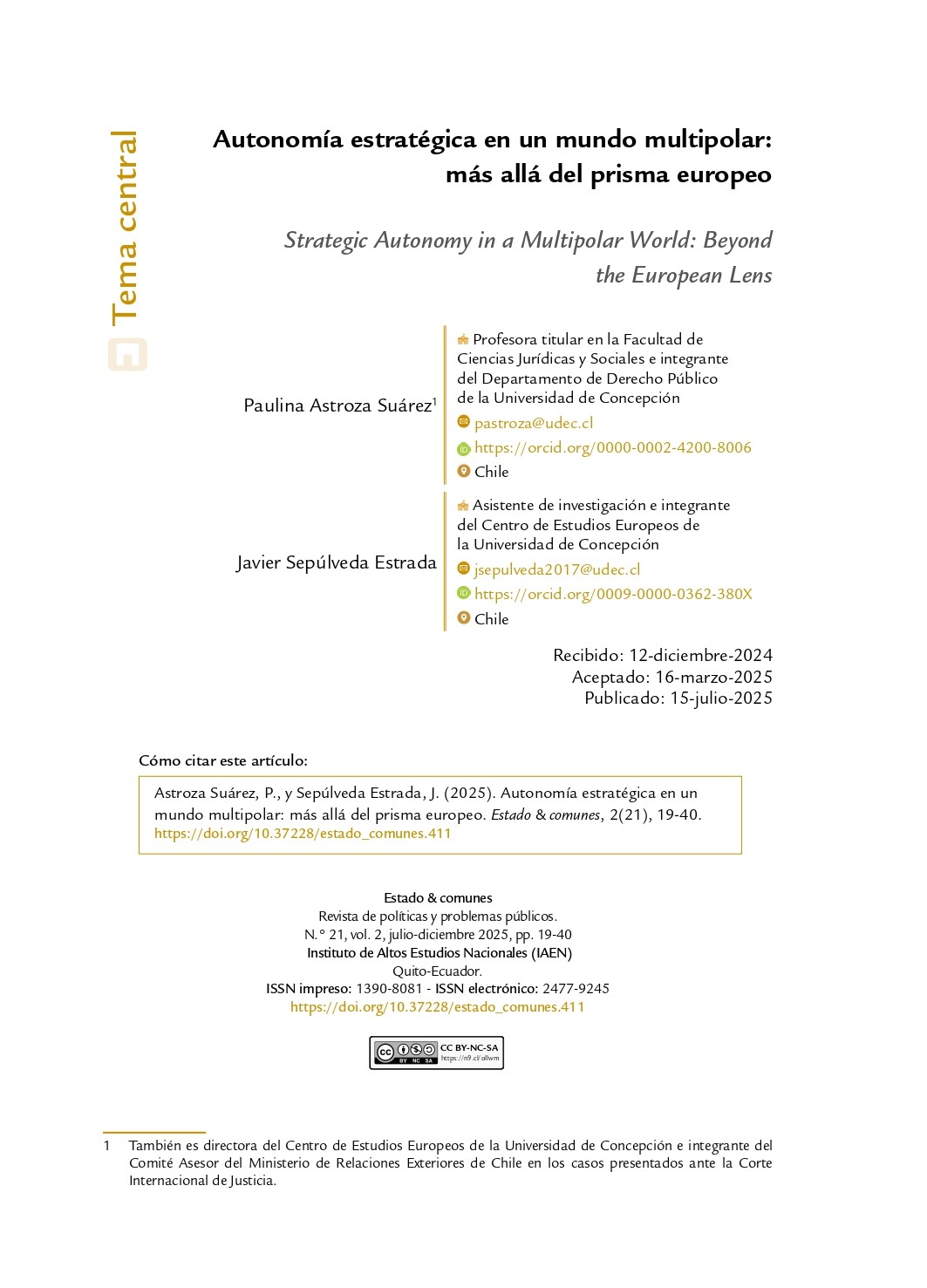Strategic Autonomy in a Multipolar World: Beyond the European Lens
Main Article Content
Abstract
In a fragmented and multipolar international landscape, strategic autonomy emerges as a key response by states to the increasingly fluid and uncertain dynamics of the global order. This article aims to analyze the interpretations of strategic autonomy developed by the European Union, India, Turkey, and South Korea, identifying their specific features and lines of action. The research employs a qualitative-comparative methodology based on doctrinal analysis and the strategic discourses of each actor. The findings reveal that, although the concept has European origins, it has been adapted by other states to their respective geopolitical contexts, enabling them to manage relationships with major powers without compromising decision-making capacity. This international relations approach offers a flexible and valuable framework for states seeking to preserve their sovereignty and enhance their presence in a constantly evolving global environment— an approach that may also hold particular relevance for Latin America.
Downloads
Article Details
How to Cite
Issue
License
Copyright (c) 2025 Paulina Astroza Suárez, Javier Sepúlveda Estrada
Author Biographies
Paulina Astroza Suárez (University of Concepción)
Professor, Faculty of Legal and Social Sciences and member of the Department of Public Law
Javier Sepúlveda Estrada (University of Concepción)
Research assistant and member of the Center for European Studies











